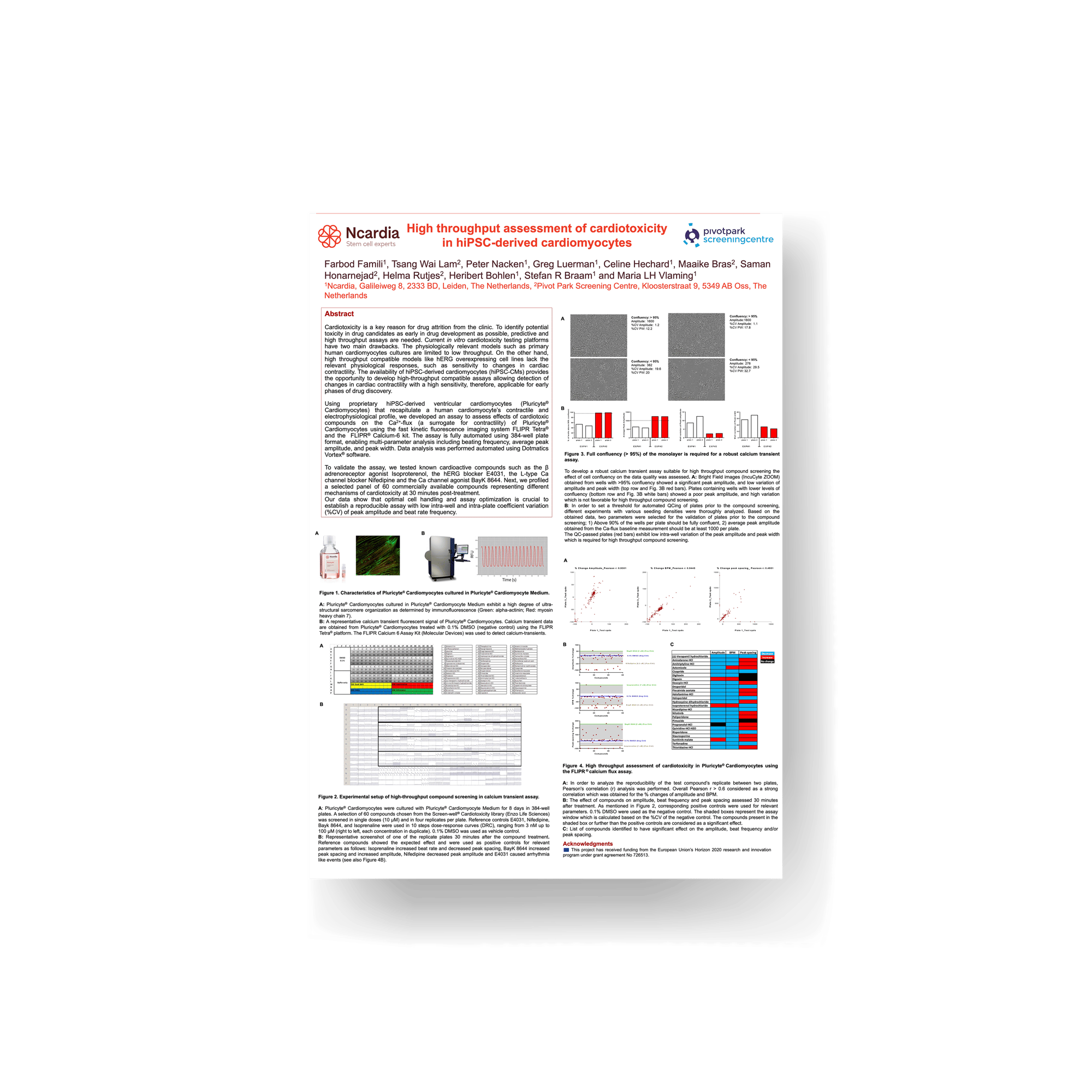Scientific poster: High throughput assessment of cardiotoxicity in iPSC-derived cardiomyocytes
This scientific poster describes high throughput assessment of cardiotoxicity in iPSC-derived cardiomyocytes
TAKE THE FIRST STEP

ABOUT US
Predict future safety and efficacy more efficiently
For more than a decade, Ncardia has been pioneering innovations in human induced pluripotent stem cells (iPSC). Our iPSC drug discovery platforms have been successfully leveraged by large biopharmas, up-and-coming drug discovery firms and multinational research consortia to advance therapeutic candidates for cardiovascular, neurological and other disease areas.